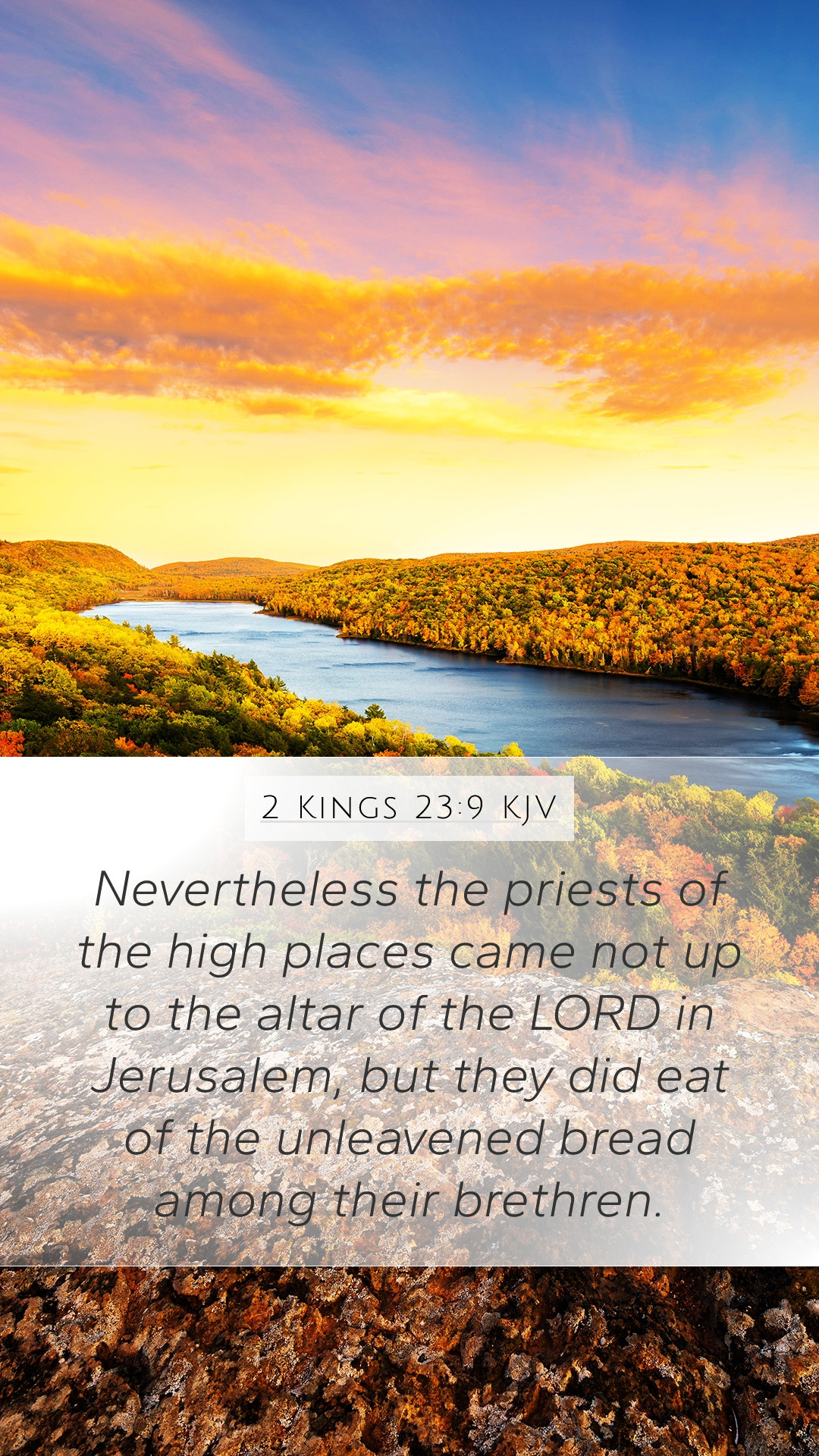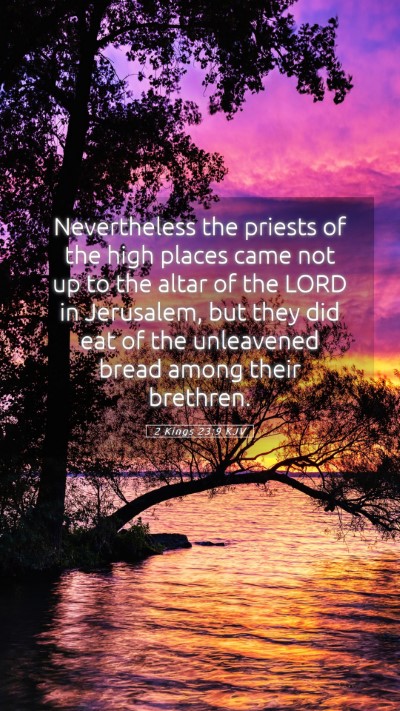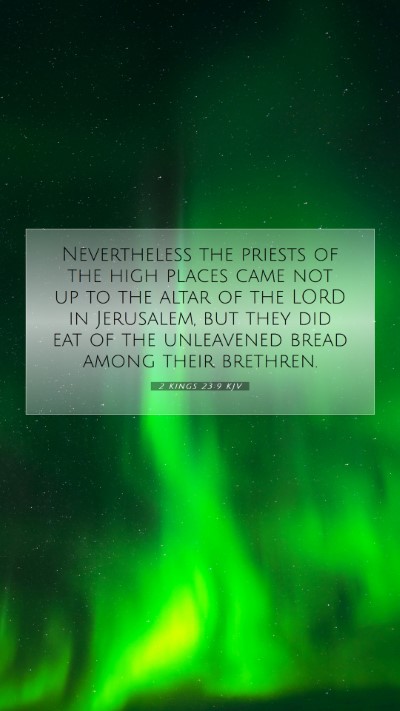2 Kings 23:9 - Understanding Scripture
Verse: "And the priests of the high places came not up to the altar of the Lord in Jerusalem, but they did eat of the unleavened bread among their brethren."
Bible Verse Meanings and Interpretations
The verse captures a significant moment in the reign of King Josiah, emphasizing the disobedience of the priests who served at the high places. This commentary delves into the implications of their actions and the broader context of biblical worship.
Historical Context
During Josiah's reign, there was a religious reform aimed at restoring proper worship according to the Law. The priests, who operated at the high places, were not accessing the central altar in Jerusalem, which represented the true and rightful worship of God.
Complete Commentary Insights
- Matthew Henry: Highlights that the priests' failure to come to Jerusalem signifies their unwillingness to abandon idolatry and the practices contrary to the Mosaic law. They were still linked to pagan worship.
- Albert Barnes: Focuses on the practical implications of this disobedience, revealing that while these priests maintained their rituals, they missed the essence of holy communion with God. Their status of eating unleavened bread among their brethren indicates a feigned adherence to the law.
- Adam Clarke: Analyzes the significance of the unleavened bread as a symbol of God's covenant with His people, arguing that consuming it among brethren shows a communal but ultimately ineffectual worship practice lacking divine favor.
Biblical Exegesis and Scripture Analysis
In-depth analysis reveals that the priests of the high places represent a compromise of faith—a failure to fully embrace the worship as prescribed in the Torah. Their actions illustrate how rituals can become hollow when detached from true devotion.
Application for Today's Believers
Understanding this verse can inspire believers to evaluate their own worship practices. It prompts questions about authenticity in spiritual life and the importance of adhering to biblical principles.
Key Themes
- Worship Authenticity: The contrast between true worship and merely ritualistic practices.
- Community and Inclusion: The significance of communal eating but juxtaposed with the absence of true worship.
- Idolatry Versus True Faith: The critique of being involved in practices that stray from God's directives.
Cross References
- 2 Kings 12:3 - Highlights the historical backdrop of high places and ongoing worship issues.
- Deuteronomy 12:5 - Outlines the command to worship at a single site designated by God.
- 2 Chronicles 34:33 - Describes Josiah's reforms and further clarifies the context of the priests' behavior.
Conclusion
2 Kings 23:9 is rich with meaning, exemplifying the struggle between proper worship and the allure of traditional yet illegitimate practices. Engaging with this verse serves as an invitation for believers to ensure that their worship is grounded in Scripture and free from corruption.
Join a Bible Study Group
To explore the depths of such verses and gain more insights, consider participating in a Bible study group or using Bible study resources designed to promote biblical exegesis and understanding.
Further Resources
- Online Bible study materials for in-depth learning
- Bible study guides focusing on Old Testament theology
- Courses available for understanding difficult Bible passages


